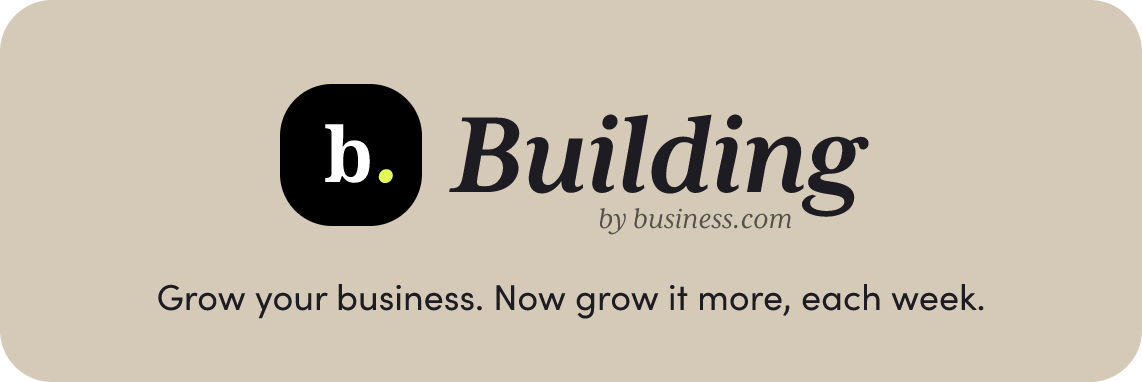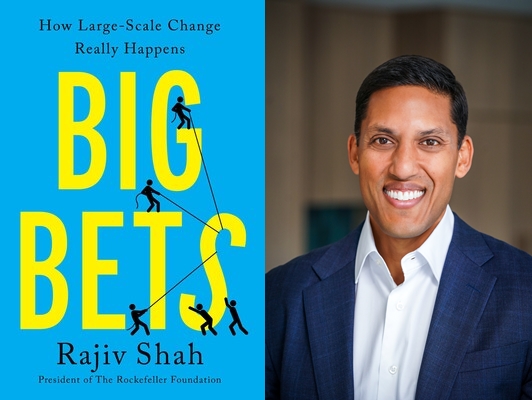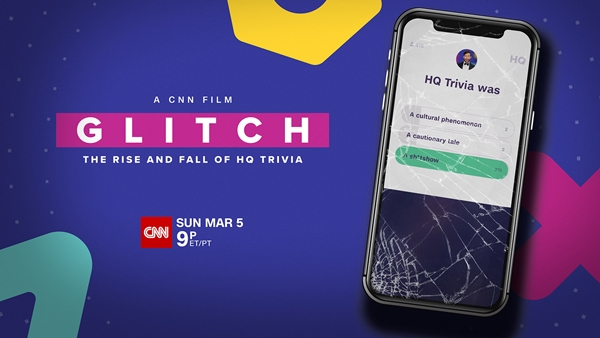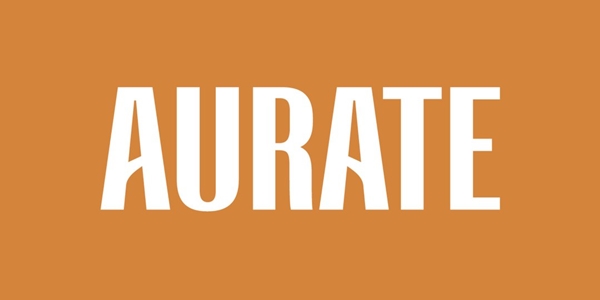Executing a big initiative is daunting but doable. Take it from Dr. Rajiv Shah, president of the Rockefeller Foundation. He oversaw the institution’s rapid rollout of a nationwide COVID testing market at the pandemic’s onset. Previously, he was director of the Bill and Melinda Gates Foundation and led USAID under President Obama, organizing the administration’s response to crises like the 2010 earthquake in Haiti and the 2014 Ebola outbreak in Africa.
In his new book Big Bets: How Large-Scale Change Really Happens, Shah details how to turn a plan into reality, whether it’s saving millions of lives or growing your company. He spoke with b. about the lessons he’s learned along the way.
b.: You talk about the importance of “zooming in and out.” How do you manage that in a very practical way?
Shah: You have to be able to go deep and understand really fine detail when you’re involved in a big, complex effort with some urgency — and you have to be able to step way back and see the big picture. I have found the best leaders can do both, and know when to do both…
The CDC had estimated we’d have 1.6 million cases [of Ebola]. We ended up ending that crisis with only 30,000 cases and kept it contained. But we had to go deep into understanding … what is the specific way that people are getting infected from? In this case, hugging, washing, kissing, and offering respects to the body of a deceased family member … We were able to come up with a solution from the local community to use burial bags and WHO-certified burial teams to remove those bodies in a way that was respectful to families and that prevented that contagion.
But then we had to zoom all the way out and say, OK, what are we trying to do here? We’re trying to protect American communities from getting Ebola; we’re trying to save lives in West Africa; and we’re trying to contain the economic fallout from what could have been a massive global pandemic… We had to negotiate with other countries and negotiate across the aisle in the United States between Democrats and Republicans … So, we had to be able to zoom in and zoom out.
b.: You use Bill Gates’s simple question to you (“What does it cost to immunize one child?”) as an example of how rudimentary facts power complex solutions. What are ways to arrive at this mindset?
There were 600,000 kids dying in poor countries [from rotavirus], no kids dying in wealthy countries, but the vaccines were going to be available only in the wealthy countries. [Bill and Melinda Gates] said, “That’s wrong.”
And so … the goal clarity that allowed Bill’s simple question [was], “How much does it cost to vaccinate a child? And how much if we multiply that by 104 million children born every year? How much is that going to cost, so we can get about the business of raising that capital?” That led to that logic … It really gets to understanding what the solutions are and what data and information and evidence supports the effectiveness of those solutions.
I find that in the social sector and public service and philanthropy, it can be too easy sometimes to just sort of do things and feel good about doing them without being as rigorous about measuring results.
b.: What advice would you give people who are in the private sector and still want to be affecting positive change?
Shah: The private sector is essential to solving any of the world’s big, hairy problems, from climate change to hunger to preventing future pandemics. In all of those cases, it’s private-sector entrepreneurial energy, innovation, and capacity that will invent the tools … and bring the business discipline — especially around measuring results — that makes it possible…
We partnered with Unilever to bring soap into slum communities … You know, they are advancing their business, selling soap; it just turns out, as you’d expect, that washing your hands reduces the kinds of illness that can be debilitating to kids … We work with 25 big food companies trying to move 50% of their supply chain to regenerative agriculture … We work with battery chemistry scientists that are coming up with the next generation of stationary storage. We work with AI experts that are doing remote management of energy systems and grids…
You’ve just got to be able to communicate and help people see that … we’re all working on the same mission.
Big Bets is available now.
This interview has been edited for length. Click here to read our full Q&A with Dr. Rajiv Shah.






.png)